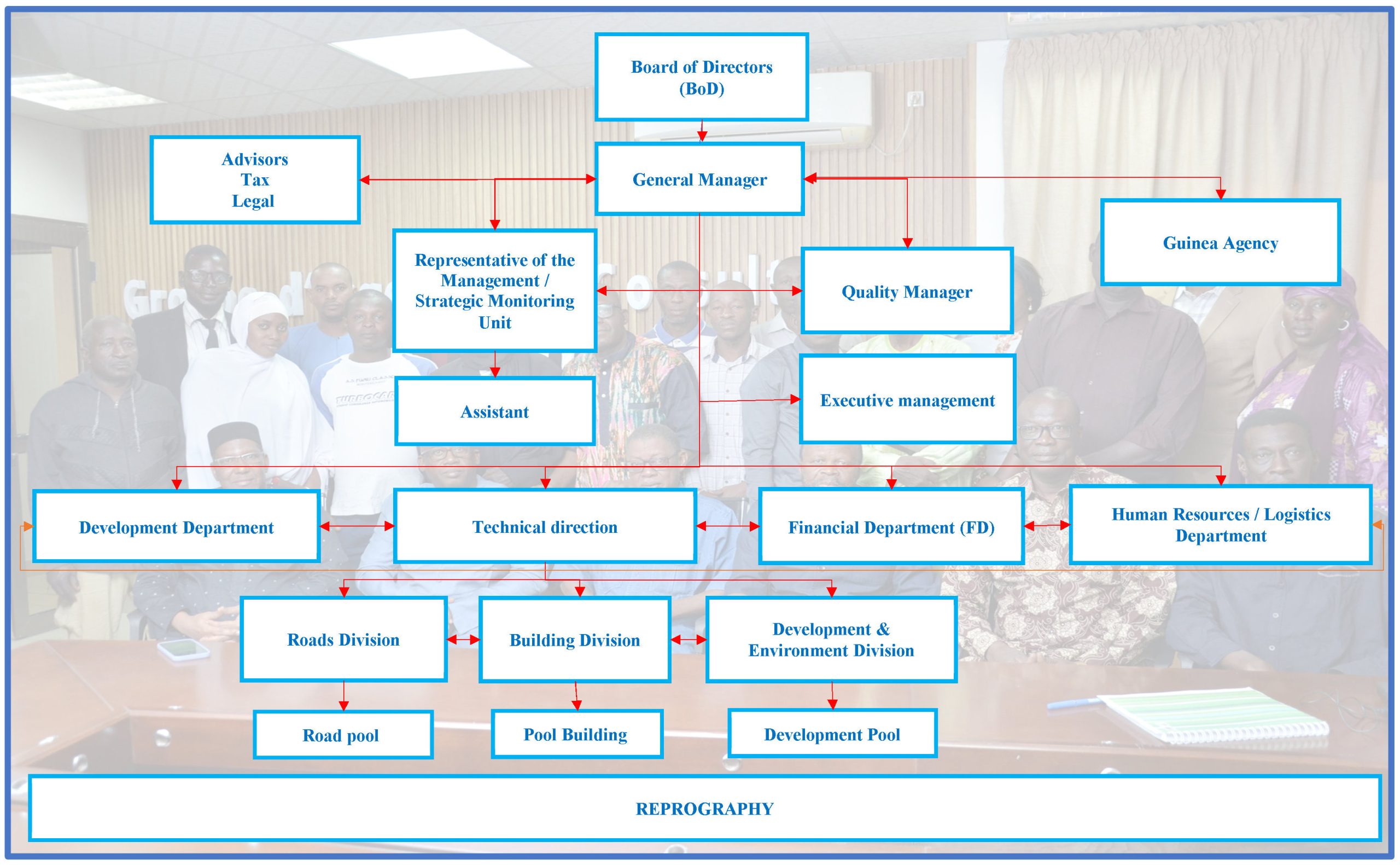HUMAN RESOURCES OF GIC MALI
THE GIC TEAM
On the eve of the end of our studies at the National School of Engineers (ENI) in June 1987, each of us young engineers was thinking about our professional future.
• Many of our comrades at the time dreamed of trying a career in state administration.
• Some were looking for work in the few construction companies in the area.
• Others meanwhile were looking towards NGOs and other job-providing institutions.
The future founders of the GIC Consulting Engineers Group that we were met every evening to discuss what we needed to do in the future.
All the ideas were running through our heads. What is certain is that we did not want to be either state employees or recruited in a private company.
We dreamed of starting our own business. But what to do?
The private sector in the field of construction services was almost non-existent. And yet it was necessary to take the plunge.
Providence would come with the acquaintance in 1988 of François PICARD, a specialist in Rural Development working at HELVETAS (A SWISS NGO). An informal collaboration was born with what was called at the time CISSE/GUINDO to undertake studies of plains. In short, François PICARD was the undisputed godfather of what would become, through the force of a shared conviction, the GIE Groupe d’Ingénieurs Consultants (GIC) in 1988. The GIC would leave many positive imprints on Rural Development projects in the wake of its future collaborations with HELVETAS, PMR-FED and other actors invested in the Rural world.
The creation of AGETIPE in 1992 gave another boost to the structural evolution of GIC to become an SARL, and was also a springboard to further assert itself by expanding its areas of expertise to pure construction.



ORGANIZATIONAL CHART


